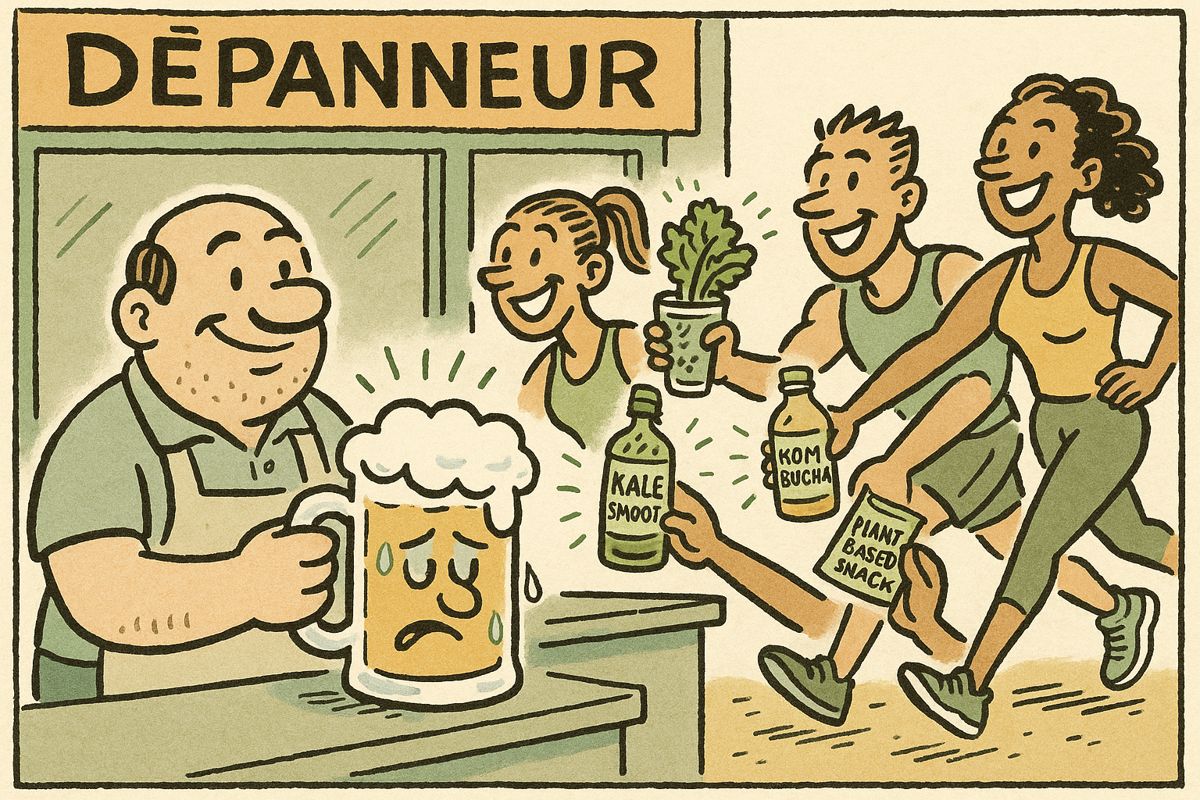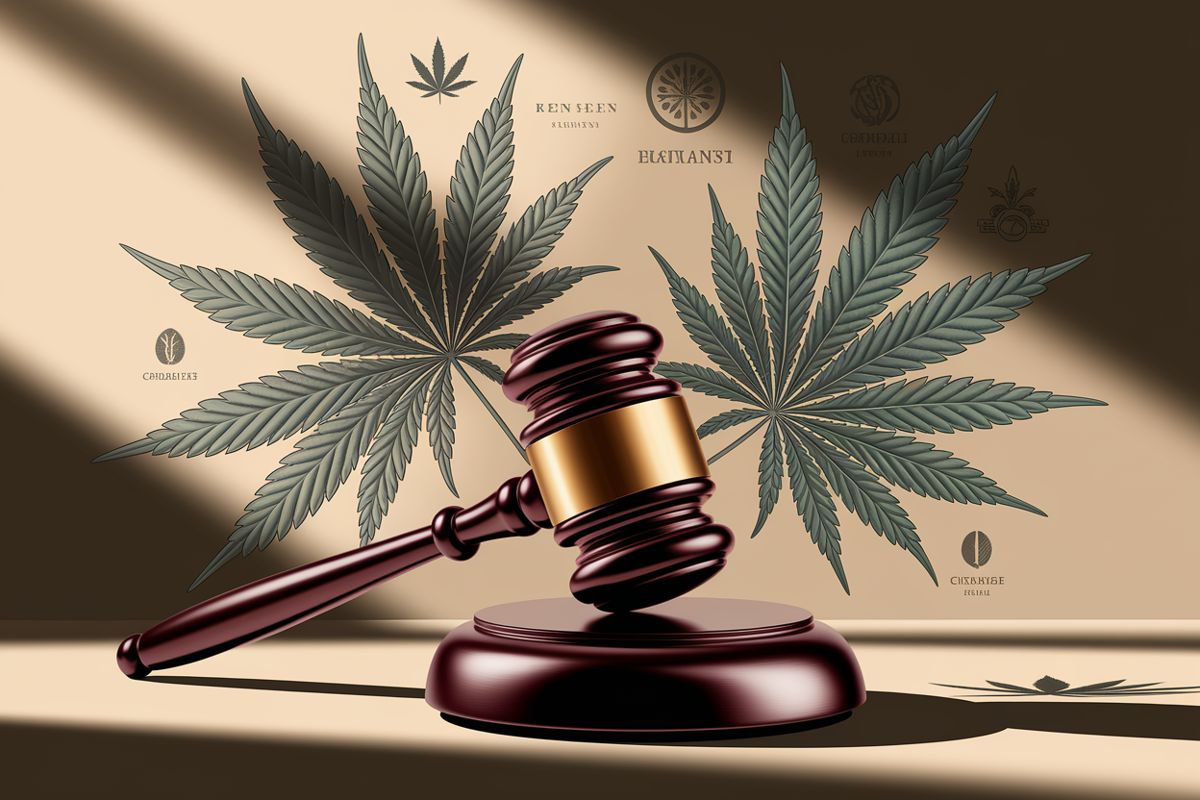
From Private Journey to Public Change: How Lived Experience Is Shaping Addiction Recovery Policy
By [Author Name] - For [Publication]
16 articles • Page 1 of 2

By [Author Name] - For [Publication]

In Québec, the dépanneur is more than just a corner store - it is a cultural institution, a neighborhood anchor, and a mirror of changing societal values. Rooted in the French verb "dépanner," meaning to help or troubleshoot, these stores have long provided quick solutions for everyday needs, offering everything from snacks and groceries to beer and wine. But as Québec society evolves, so do its dépanneurs, reflecting a broader shift toward healthier, more inclusive, and less alcoholcentric lifestyles.

Recently declassified documents related to the assassination of President John F. Kennedy have revealed a startling pattern of deliberate deception by the CIA regarding their knowledge of Lee Harvey Oswald prior to the tragic event. For nearly sixty years, the agency repeatedly denied any connection to Oswald, but newly released files expose direct operational contact between Oswald and a CIA officer specializing in psychological warfare. These revelations not only reshape the narrative of one of the most scrutinized events in American history, but also raise profound questions about institutional trust, transparency, and the ways that public perception can be manipulated by those in power.

A California appellate court has issued a definitive ruling: holding a cellphone while driving is illegal for any reason. This decision expands the scope of prohibition beyond texting or calling, covering all uses - including navigation apps and music selection. The goal is clear: eliminate ambiguity, reinforce boundaries, and make distracted driving a thing of the past.

Sweden has introduced groundbreaking legislation banning the purchase of custommade adult content, marking a significant move in its ongoing effort to curb exploitation and protect vulnerable individuals. This initiative extends the renowned Nordic Model from physical sex work into the digital realm, aligning with a broader cultural shift that prioritizes mental health, ethical consumption, and positive community standards.

The World Health Organization (WHO) has issued a landmark appeal to all countries: significantly increase taxes on alcohol and sugary drinks by 2035 to combat noncommunicable diseases and improve global health. This policy recommendation is grounded in extensive research linking alcohol and sugar consumption to lifethreatening conditions such as cancer, liver disease, heart disease, and diabetes. It represents a powerful step in shifting global norms around drinking and sugar intake.

Nepal is battling a serious health crisis with noncommunicable diseases causing 71% of all deaths. The country has launched a groundbreaking multisectoral approach to tackle health challenges more effectively. By implementing strict alcohol advertising restrictions and improving road safety, Nepal is pioneering a comprehensive strategy to prevent preventable deaths. The government is breaking down barriers between departments and collaborating across sectors like transportation, agriculture, and urban planning. This innovative approach demonstrates how coordinated efforts can transform public health outcomes.

The World Health Organization is developing bold strategies to combat harmful digital marketing across global platforms. Their comprehensive initiative targets dangerous product promotions for tobacco, alcohol, unhealthy foods, and breastmilk substitutes. By creating innovative policy frameworks and educational resources, WHO aims to protect vulnerable populations, especially young people, from aggressive digital marketing techniques. The organization recognizes the rapid evolution of digital marketing and seeks to provide practical, adaptable regulatory solutions. Their approach represents a crucial step in safeguarding public health in an increasingly digital world.

Shadow markets of illicit tobacco and unrecorded alcohol pose critical health dangers that spread deadly products across regions. These underground markets bypass safety rules, creating massive risks through contaminated substances that can cause severe organ damage and potential fatality. Health experts from the World Health Organization are actively combating these threats using advanced technologies and crossborder collaboration. Their strategic approach involves tracking suspicious products, sharing intelligence, and developing comprehensive support networks to protect vulnerable populations. The ultimate goal is to dismantle these harmful markets and safeguard public health through persistent, unified efforts.

The Biden administration will now require detailed alcohol labels revealing ingredients and nutrition facts. This groundbreaking change empowers consumers by offering clear, honest information about their drinks. The new rules address longstanding gaps in alcohol product transparency, helping people make more informed choices. By mandating comprehensive disclosures, the government aims to support public health and consumer awareness. This shift marks a significant step towards treating alcohol like other food products, giving people the knowledge they deserve.

The Cannabis Policy Coalition brings together diverse stakeholders to create responsible marijuana regulations. This unique group includes corporations, researchers, and social justice advocates working to shape cannabis policy. They aim to balance market interests, public health, and social equity concerns. Learning from historical regulatory approaches like alcohol prohibition, the coalition seeks comprehensive and thoughtful policies. Their ultimate goal is to develop frameworks that protect consumers while creating fair economic opportunities.

The FTC is launching a groundbreaking challenge against Southern Glazer's Wine and Spirits, targeting their massive $26 billion alcohol distribution monopoly. By dusting off the forgotten RobinsonPatman Act, regulators are striking at anticompetitive pricing practices that crush small businesses. This bold move could dramatically reshape the alcohol distribution landscape, creating fairer market opportunities. The investigation signals a major shift in how regulators approach market competition and corporate power. If successful, this action might transform industry dynamics and protect smaller players from giant distributors.

Here's a summary in simple words: The Federal Trade Commission is thinking about suing Southern Glazer's Wine and Spirits, a massive alcohol distributor that controls most of the liquor market in America. This lawsuit would use an old law called RobinsonPatman Act to challenge the company's unfair pricing practices that hurt smaller businesses. If successful, this case could change how big companies compete and help smaller players get a fair chance in the marketplace. The FTC wants to show that market fairness matters more than just low prices. This legal move could set a big example for other industries about stopping business monopolies.

Presidential pardons offer a powerful second chance for individuals with past criminal convictions, allowing them to rebuild their lives and overcome legal barriers. Six people recently received executive clemency, each with a unique story of personal transformation and redemption. These pardons recognize individual growth, highlighting how past mistakes do not have to define a person's entire future. The recipients have demonstrated remarkable resilience by establishing businesses, continuing military service, and becoming valuable community members. Through these actions, the pardons reflect a compassionate approach to justice that values rehabilitation and the potential for positive change.

The FTC is investigating Southern Glazer's Wine & Spirits for unfair pricing practices that hurt smaller alcohol retailers. The probe examines the company's massive market control and distribution strategies across the country. This investigation marks a significant shift in regulatory approach, focusing on market fairness beyond just consumer prices. By challenging the distribution giant, the FTC aims to create a more balanced marketplace for smaller businesses. The inquiry could potentially reshape alcohol distribution and impact public health considerations.